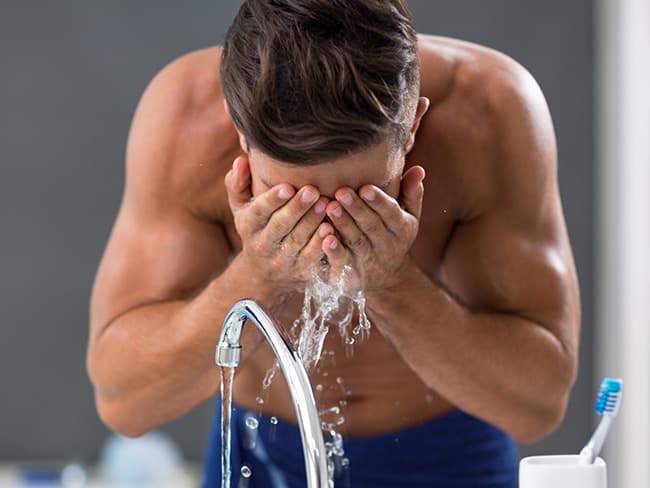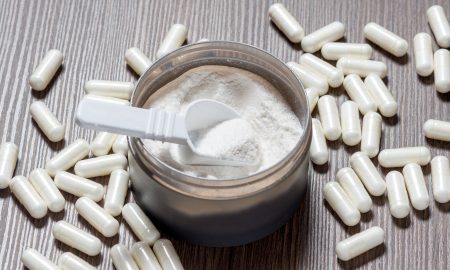
Acne is a common skin disorder. It is caused by the action of hormones and also other substances on the skin’s oil glands (sebaceous glands) and hair follicles. The above factors lead to plugged pores and also outbreaks of blackheads, whiteheads, and Pustules commonly called pimples or zits. If you have acne, know you’re not alone. A lot of people are faced with acne and begin to use aeno face cleanser for acne over time, of which there are a huge number of them at the moment.
According to research by the British Association of Dermatologists in 2015, Acne is a common skin condition that affects approximately 10% of the world’s population, and nearly 85 percent of people only in the USA between the ages of 12 and 24 experience at least minor breakout of acne according to American Academy of Dermatology. If you deal with occasional breakouts then you are in good company but repetitive breakouts suggest otherwise.
Many factors play part in formation of acne, including blocked pores, acne-causing bacteria, sebum and keratin production, hormones, and inflammation.
Let’s look at 10 little known things that cause acne:
Food
The Diet you consume controls your life but food alone doesn’t cause acne or prevent it. Your genetics, lifestyle, and what you consume as a diet all play a role in the condition. While some foods maybe beneficial for skin but others may make it worse. We advise you to follow the diet for hormonal acne in order to eliminate some of the factors causing acne.
A study published in the Journal of the Academy of Nutrition and Dietetics found an association between acne and diets high in the following:
- Dairy Products
The more dairy products you take, the more likely you are to have acne especially if it’s skim milk. Studies have found that young adults who regularly consumed dairy were four times at risk to suffer from acne. It is not yet conclusive how milk may contribute to the development of acne, but several theories have been proposed.
- Sugar and Some Carbs
You’re more likely to have acne if your diet is full of sugar and carbs, foods rich in refined carbohydrates include:
- Sweeteners like cane sugar, maple syrup, honey
- Bread, crackers, cereal, or desserts made with white flour
- Sodas and other sugar-sweetened beverages
Refined carbohydrates are dissolved quickly into the bloodstream, which swiftly increases blood sugar levels. When blood sugars rise, insulin levels also rise to help shuttle the blood sugars out of the bloodstream and into your cells when your body makes more insulin to bring blood sugar levels down, it triggers other hormones that can increase oil production in your skin.
- Chocolate
A handful of small studies reveal that people who eat more chocolate are more likely to get pimples. Several informal surveys (https://onlinelibrary.wiley.com/doi/full/10.1111/jdv.14475) have linked eating chocolate with an increased risk of developing acne.
Stress and Anxiety
Psychological and emotional stress directly affects the levels of hormones. Stress causes acne by releasing the hormone cortisol, which may make your skin more oily this kind of acne is called stress acne.
It can be cured easily treatment for stress acne has simple steps to be taken care of such as:
- Stress management
- light work-out
- using vitamin A
Skin-Care Products
Using too many skincare products or switching your beauty products regularly triggers your acne especially oil-based products such as
- Makeup
- moisturizing creams
- Lotions
Look for oil-free and unscented cosmetics but nowadays retinol for acne is being used for clearing acne and reducing acne scars.
Hormones
Now that you’re an adult, you have gone by the primigenial problems that caused teenage acne, right? Well, your random breakouts might suggest otherwise. When sex hormones rise in both genders during puberty, the oil-producing glands under the skin become bigger and produce more sebum or oil. Too much oil damages the pore’s cellular walls and allows bacteria to multiply.
Hormonal changes during periods, pregnancy and the use of oral contraceptives can all trigger oil production and cause acne formation or recur. Although the pimples have similar appearance, adult breakouts are different from the kind you had in high school.
Oily Skin
When agitated sebaceous glands produce too much sebum that combines with dead skin cells, pores become clogged, and bacteria on the skin accumulate, causing acne.
- Clogged pores
Oily skin creates clogged pores which can be treated with the use of The ORDINARY SALICYLIC ACID that helps exfoliate the inside walls of pores to fight the appearance of blemishes and for better visible skin.
- Oily forehead
When your skin produces excess sebum (or oil) your forehead and other parts of your face can appear oily. While this may happen for a variety of reasons, stress, and fluctuating hormones.
It can be treated simply by washing the face frequently or by the use of The ORDINARY SALICYLIC ACID.
Pressure on your skin
Frequent touching of your face or revealing it to repeated friction can exasperate acne. Mobile-phones, sweatshirts, hats, safety helmets, tight collars, and your own hands can all cause sweat and bacteria to get confined against your skin, you expose your mobile phone to surfaces with bacteria on them, and when you talk on the phone, you put these bacteria close to your skin causing clogging pores and producing pimples and blackheads.
Dry Skin
Oily skin is indeed the cause of bad breakouts, but so is the other extreme because dry skin creates dead skin that causes clogged pores.
- Dry skin on the face
Dry skin on the face is the most common acne on face which can be treated by the use of retinol for acne
- Face moisturizer for men
Men tend to have more dry skin due to less or no use of moisturizers.
Too much sun or Heavier Sunscreens
Sunburns cause your skin to dry out, which triggers the production of more oil to compensate. Excessive oil leads to more acne but heavier sunscreens or their excessive use may trigger acne if you are prone to it.
Pimple popping
When you try to burst a pimple or remove blackheads and whiteheads, it’s easy to push the bacterial infection further down and spread it underneath your skin.
How to get rid of blackheads?
Safest and easiest way to remove them is to use charcoal masks and other types of acne patches.
How to get rid of whiteheads?
Getting rid of whiteheads is similar to blackheads using masks and non-comedogenic products.
Medication
Drugs that contain certain elements can make acne worse such as:
- Androgens
- Corticosteroids
- lithium

















Follow Us